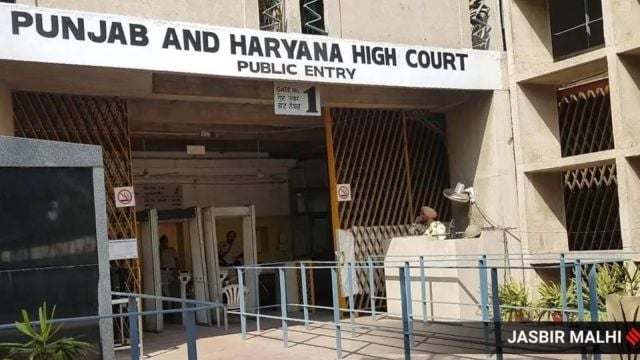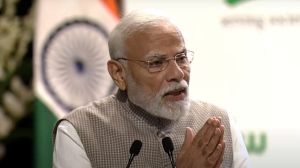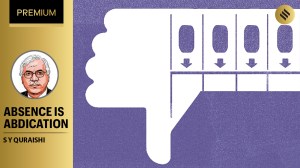No strikes at PGI, Chandigarh, high court reiterates
The dispute stems from protests by central government hospital employees against recent changes in service conditions, following the lapse of certain central notifications.
 The bench was hearing a batch of petitions, including CWP No. 162 of 2024 and CWP No. 24 of 2024, which had challenged protests, strikes and alleged service disruptions at the premier medical institution. (File Photo)
The bench was hearing a batch of petitions, including CWP No. 162 of 2024 and CWP No. 24 of 2024, which had challenged protests, strikes and alleged service disruptions at the premier medical institution. (File Photo)The Punjab and Haryana High Court on Thursday disposed of a petition challenging protests by employee unions at the Post Graduate Institute of Medical Education and Research (PGIMER), Chandigarh, while reiterating that no union would be allowed to obstruct patient care or disrupt the functioning of the hospital.
A division bench comprising Chief Justice Sheel Nagu and Justice Sanjiv Berry clarified that the unions “shall not enter the premises of the PGI” in a manner that causes “obstruction to the movement of the patients or the employees or officers”.
The bench was hearing a batch of petitions, including CWP No. 162 of 2024 and CWP No. 24 of 2024, which had challenged protests, strikes and alleged service disruptions at the premier medical institution. “162 is being disposed. 24 is the same,” the bench noted, indicating that both were being considered together.
During the hearing, counsel for the Union of India, Additional Solicitor General Satya Pal Jain, informed the court that issues relating to the validity of the central government notifications—central to the dispute—were currently under conciliation proceedings before the labour commissioner (central). The court recorded that the labour commissioner “is about to decide” the matter and noted that further hearings would depend on the outcome of those proceedings.
“As regards the validity of the notifications… the same will be taken up after the Labour Commissioner submits [a decision], or if it fails to take up the issue, the court will hear it in the month of September,” the bench stated.
The dispute stems from strikes by central government hospital employees against recent changes in service conditions, following the lapse of certain central notifications. However, the high court made it clear that any demonstration or protest or strike that affects medical services at PGIMER will not be permitted.
The bench added that the challenge to the notification “shall be taken up after the Labour Commissioner submits [a decision], or if the LC fails to do so, the same shall be taken up in the month of September”.
A dispute over contract labour rules
The issue traces back to the expiry of an exemption granted to PGIMER under the Contract Labour (Regulation and Abolition) Act, 1970. Through a 2014 notification, the Ministry of Labour and Employment had prohibited the use of contract labour in sanitation, security, and catering services at PGIMER, acting on the advice of the Central Advisory Contract Labour Board (CACLB).
PGIMER, however, subsequently sought and obtained exemptions under Section 31 of the Act. These were conditional upon the institute paying contract workers wages and benefits on par with the lowest-paid regular employees.
These exemptions were renewed periodically—in 2018, 2020, and 2023—but the latest exemption expired on January 12, 2024. The institute applied for an extension, citing its continued need for contractual staff. However, the CACLB deferred a decision during its July 2024 meeting, as the matter was pending before the high court.
According to minutes of a November 5, 2024, meeting placed on record in court, PGIMER stated it had cleared wage arrears for contract workers in compliance with the exemption conditions up to January 13, 2024. Officials from the ministries of Labour and Health, as well as PGIMER, acknowledged that under Rule 25(2)(v)(a) of the Contract Labour Rules, contract workers performing similar duties must be granted the same wages and working conditions as regular employees.
In an interim order dated November 22, 2024, the high court had issued a writ of prohibition, restraining all PGIMER employees—regular or contractual—from striking during the pendency of conciliation proceedings. It had also directed the deputy chief labour commissioner (central), who is presiding over the conciliation process, to endeavour to conclude it within two months.
The court further clarified that a strike would not be permitted after the conciliation ends—if adverse to the employees—without explicit permission from the court.
With Wednesday’s order, the court has formally disposed of petitions relating to the protest and obstruction of medical services. However, the broader question involving the validity of the central notifications remains pending, subject to the outcome of the ongoing conciliation process.












